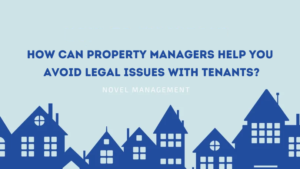The Fair Housing Act, a critical piece of civil rights legislation, seeks to eliminate housing discrimination across the United States, including Florida. For landlords, understanding the nuances of it is not just a legal obligation under landlord-tenant laws, but also a fundamental aspect of ethical property management. Keep reading for a general overview of the Fair Housing Laws in Florida!
Historical Context and Purpose
The Fair Housing Act (FHA) was established in 1968, initially as a part of the Civil Rights Act, with the primary aim of combating discrimination in the housing market. It prohibits housing discrimination based on certain factors that individuals have no control over in housing-related transactions.
Over the years, the FHA has been amended to enhance its protective scope, most notably through the Fair Housing Amendments Act of 1988, which expanded protections to include classes like persons with disabilities and families with children.
What are Fair Housing Rights?
Fair housing is a foundational principle aimed at ensuring all individuals have equal access to housing opportunities without facing discrimination. At its core, fair housing is about removing barriers and creating an inclusive environment in the housing market, ensuring that everyone, regardless of their background or circumstances, can find a home that meets their needs.

Fair housing is not just about preventing outright housing discrimination; it also involves proactive measures to foster diverse, inclusive communities. This includes ensuring that housing policies and practices do not inadvertently disadvantage certain groups, promoting accessibility for individuals with disabilities, and supporting programs that assist marginalized communities in finding affordable housing.
Protected Classes Under the Fair Housing Act
The Federal Fair Housing Law protections cover seven classes, including:
- Race: Protecting individuals from being discriminated against based on their race.
- Color: Ensuring individuals are not discriminated against based on the color of their skin.
- Religion: Protecting individuals’ rights to housing regardless of their religious beliefs or practices.
- National Origin: Ensuring that people from all countries and backgrounds have equal access to housing.
- Sex: This protects against housing discrimination based on gender and by extension, sexual orientation, and gender identity.
- Disability: Ensuring that individuals with disabilities have equal opportunities in housing, including the right to reasonable accommodations and modifications. Such accommodations can include allowing service animals.
- Familial Status: Protecting families with children under 18, pregnant women, and anyone securing custody of children under 18, from housing discrimination.
Florida’s Commitment to Fair Housing
In Florida, the FHA mirrors the federal Act’s protections mentioned above. Florida’s commitment to fair housing aims to ensure that all individuals, regardless of their background or circumstances, have equal access to housing opportunities.

Compliance and Best Practices
To ensure compliance with the FHA in Florida, landlords should adopt a series of best practices that not only fulfill legal requirements but also promote fairness and equality in housing. These include:
- Clear Policies and Documentation: Develop clear, consistent, and documented policies for tenant selection, dwelling rules, security deposit handling, and dispute resolution. Ensure these policies are applied uniformly to all persons seeking and staying in a unit.
- Prompt and Fair Conflict Resolution: Establish a process for addressing Florida renter complaints and disputes that is prompt, fair, and documented. This can help resolve issues before they escalate and provide a record of your responsiveness should a dispute arise.
- Fair Eviction Procedures: Ensure that you follow the state’s eviction process by having a legally valid reason for evicting a tenant.
- Inclusive Advertising: When advertising your dwelling in the state of Florida, use inclusive language that welcomes all individuals. Avoid any wording that could be construed as indicating a preference or limitation based on protected characteristics.
Exemptions to the Fair Housing Act
There are certain exemptions to the FHA under specific circumstances and Florida statutes, including:
Owner-Occupied Buildings
This applies to rental properties that are owner-occupied and have no more than four units. This gives dwelling owners, who might share common spaces with their tenants, more discretion in selecting tenants. However, according to Florida statutes, it’s crucial to note that discriminatory advertising is still prohibited for such dwellings under this exemption.

Single-family Housing Without a Broker
An exemption exists for owners who rent out single-family homes, provided they don’t own more than three such homes at the same time, don’t use a broker or agent to rent the home, and don’t engage in discriminatory advertising.
Religious Organizations
Properties that are owned, operated, controlled, or affiliated with a religious organization may be exempt from certain provisions of the FHA, provided that the Florida dwelling is not used for commercial purposes. These organizations can give preference to members of their religion, as long as they do not discriminate based on other protected classes.
Age Restrictions
The FHA does allow for age restrictions in housing under specific circumstances, most notably in housing for older persons. This can include retirement communities or senior living facilities that restrict residency to individuals who meet a minimum age requirement, typically 55 or 62 years and older. These communities must comply with specific regulations that allow them to qualify for the “Housing for Older Persons” exemption.
Private Clubs or Organizations
Similarly to religious organizations, private clubs or organizations in Florida that offer lodgings as part of their facilities or mission statement may limit occupancy to their members without being considered discriminatory under the FHA. The lodgings must be incidental to the primary purpose of the club, and the club must not be operated commercially or open to the public.
Bottom Line
For property owners in Florida, adherence to the Fair Housing Laws is not just a legal requirement but a moral responsibility, ensuring that all individuals have access to housing free from discrimination. When in doubt, work with a reputable property management company to ensure compliance with Fair Housing law. Contact Novel Management today to learn more about our services!
Disclaimer: Please note that the information provided in this blog is intended for general guidance and should not be considered as a replacement for professional legal advice. It is important to be aware that laws about property management may change, rendering this information outdated by the time you read it.




